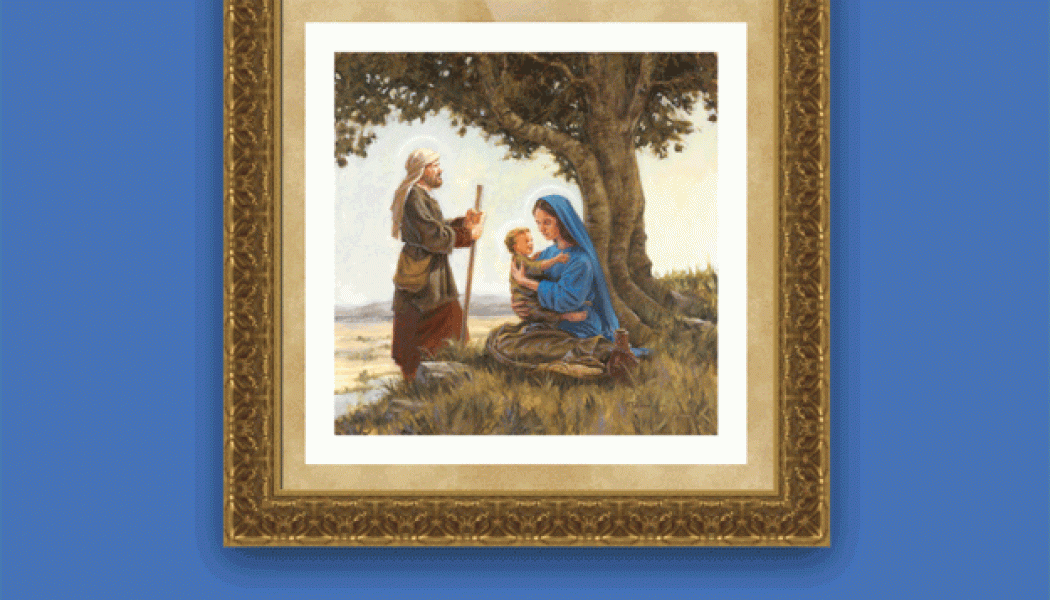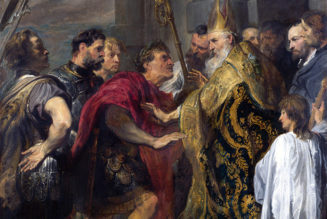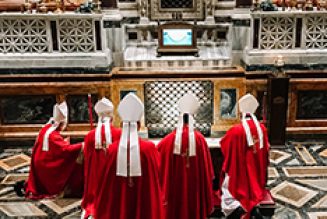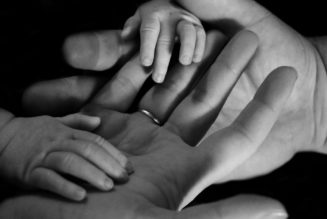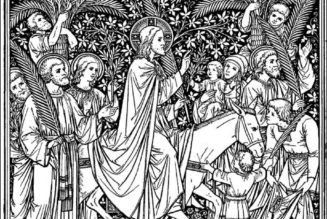By Dr. Jeff Mirus ( bio – articles – email ) | Apr 27, 2021 | In Reviews
Deeply committed Catholics have been very concerned about the Church’s response to Covid. Most of us have at least a vague suspicion that something is very wrong when the Church shuts down her sacramental ministry for any reason, especially if she seems to be simply following secular political directives—as if that agenda is not very different from her own. At first this was uncharted territory, so perhaps the initial reaction was confusion. But it was uncharted because the Church as a whole has never in her 2,000 year history restricted her mission so much or so quickly as she did in the year of Our Lord 2020.
I don’t mean that the sacraments have never been restricted. This has happened briefly and on a relatively small scale, for example, during periods of Bubonic plague. It has also happened—and sometimes for dubious spiritual/political purposes—during times of Interdict (when a Pope suspended the sacraments in territories governed by defiant Catholic rulers, for example, in order to bring spiritual pressure to bear). But the interdiction we have experienced under Covid was essentially worldwide, and not to be lifted through any amendment of life. It was an interdiction to serve the goals of public health—that is, an interdiction not to awaken people to their spiritual duties, but rather to serve the body at the expense of the soul.
Admittedly, we can see two logical reasons for this, which should not be dismissed without fair consideration. First, our understanding of the containment of infectious disease is far greater now than at any previous period in history (though it is not as if those in previous centuries did not understand that the plague was “catching”). Second, the particular strengths and weaknesses of modern culture facilitate a remarkable degree of social supervision and control—in effect the kind of omnipresent bureaucratic management with which we moderns have become distressingly familiar. This was beyond the dreams of even the most totalitarian of political actors at the time of the last major epidemic, the Spanish Flu.
So, yes, we do have to weigh a possible range of restrictions with our modern systemic capabilities in mind, and that weighing is not always easy, especially when reliable information is so often eclipsed by momentary theories and assertions. In addition, of course, the ubiquity of instant media in our world leads to three illusions which deeply affect our own thinking: First, the illusion that we know far more than we do; second, the illusion that media reports are a reasonable representation of the overall reality, even when our own experience is very different; and, third, the illusion that whatever happens anywhere must necessarily be a grave danger everywhere.
I won’t belabor these points. But those in my age group will remember how things like poisoned Halloween candy in one location became an instant threat to The Entire Universe; how certain we all became, almost overnight, of the need to lock our doors; and how quickly precautions taken against local problems have morphed into bureaucratic mandates for lockstep change—all largely justified by instant national and world news. If we confined ourselves to what was actually happening in our own communities, we would seldom be overloaded by paranoia, and we might do far more good. But in ignoring my promise not to belabor these points, I digress.
The larger point is that, yes, there are things we are forced to take into account now that it would have been impossible or pointless to concern ourselves with in previous eras. But that does not mean the fundamental balance to be maintained between material and spiritual considerations has changed.
Documentation of a wrong turn
We are left now with anything from a shadowy unease to a serious objection concerning the way not only the State but the Church herself has responded to Covid—a response which has very consistently subordinated the spiritual well-being of our people to their physical health. Never has it been clearer that the latter is perceived as ultimate reality while the former is viewed as mere sentiment. That the State would respond in this way was probably a foregone conclusion—merely another instance of a world in willful ignorance of both Christ and common sense. But that the Church has responded in almost exactly the same way is real cause for alarm.
We have all suspected that this spiritual alarm was justified, perhaps even while understanding some of the complexities involved. But we have also been taken by surprise, and have found it difficult to keep up with all the indicators and arguments which have driven ongoing events.
As pandemics go, Covid has been extraordinarily mild, with the percentage of people touched by serious illness or death extremely small by any prior standard. So what exactly has led to a nearly complete breakdown of the sacramental mission of the Catholic Church? We can scarcely grasp the immense disproportion of the wholesale spiritual retreat in the face of so modest a material challenge. What we have needed, then, is for someone to gather the threads, for someone to examine on our behalf both the context and the entire Catholic response—thoroughly vetted and analyzed in light of the priorities we instinctively know that Catholics should have.
What we have needed, in other words, is Phil Lawler’s brand new book from Sophia Institute Press, Contagious Faith: Why the Church must spread hope, not fear, in a pandemic.
The argument of this remarkably timely book need not be reproduced in detail here on CatholicCulture.org, since many of our readers have followed Phil’s commentaries on these matters “in real time”. What is important now is that this ongoing coverage, complete with ample opportunity for a more comprehensive treatment and even deeper reflection, has indeed been brought together in a single, immensely readable book. So now we have what we need: A cogent and riveting analysis of our own experience all in one extraordinarily useful place.
Right out of the gate, in an introduction entitled “Living Dangerously”, Lawler poses the ultimate questions of life and death which are (or ought to be) answered so differently by pagans and Christians. This sets the stage for an examination of the Catholic response to Covid—a response which, whatever it may do for the body, certainly chills the soul.
In ten succinct chapters, Lawler explores questions like these:
- Who closed the churches?
- Is the lockdown worse than the disease?
- What’s wrong with a virtual Church?
- Why are churches treated like leper colonies?
- Do we take the sacraments seriously?
- Are we simply surrendering to Caesar?
- Why are we so afraid?
- Is the Church in effect letting her people go?
Reaping the whirlwind?
There can, in fact, be little doubt that the long-term erosion of the Church in the West—which has made lapsed Catholics the second largest religious group—has been suddenly accelerated. In fact, it has been all but deliberately accelerated, by the near-complete suspension of sacramental ministry during the lockdown. Live-streaming is not a sacramental thing, but it does neatly blur the distinction between practicing one’s faith and letting it slide. Clearly, the message in all this—the scale of values—has been badly skewed in favor of the things of this world.
Even when we have a genuine faith and trust in God’s Providence, we cannot help but wonder how Providence works. Perhaps Covid was designed as a Providential test of the commitment of the contemporary Catholic Church to her own mission. Would the present Church emphasize the life-giving power of Catholic ministry and bring that ministry to new heights in the care of souls? Or would she signal by her own response that souls do not matter very much after all?
Without ignoring the genuine sacrifices of some bishops and priests to ensure the availability of sacramental ministry, that question has now been very sadly answered. But Phil Lawler also raises questions for the future, questions that each one must answer for himself. As feckless bishops, priests and laity drift away, perhaps we can use that answer to forge a smaller, more deeply-committed, and much-renewed Church. Perhaps we can gradually turn Catholicism once again into what Lawler calls a “contagious faith”. Perhaps in the foreseeable future, that contagious faith can be nurtured not by a Church that goes along to get along—but by a Church that saves.
Philip F. Lawler, Contagious Faith: Why the Church must spread hope, not fear, in a pandemic: Crisis Publications (Sophia Institute Press), 2021. 176 pp., paper $19.95.
Sound Off! CatholicCulture.org supporters weigh in.
All comments are moderated. To lighten our editing burden, only current donors are allowed to Sound Off. If you are a current donor, log in to see the comment form; otherwise please support our work, and Sound Off!

Join Our Telegram Group : Salvation & Prosperity
